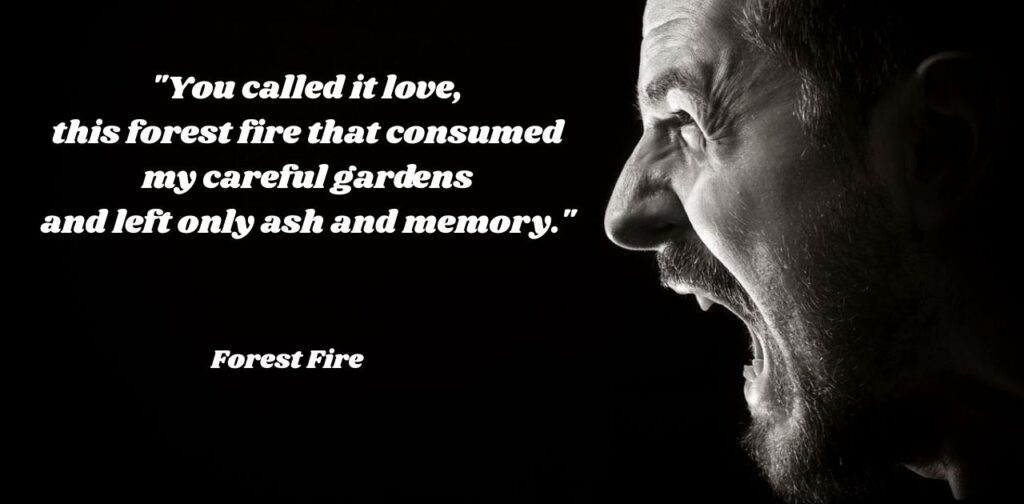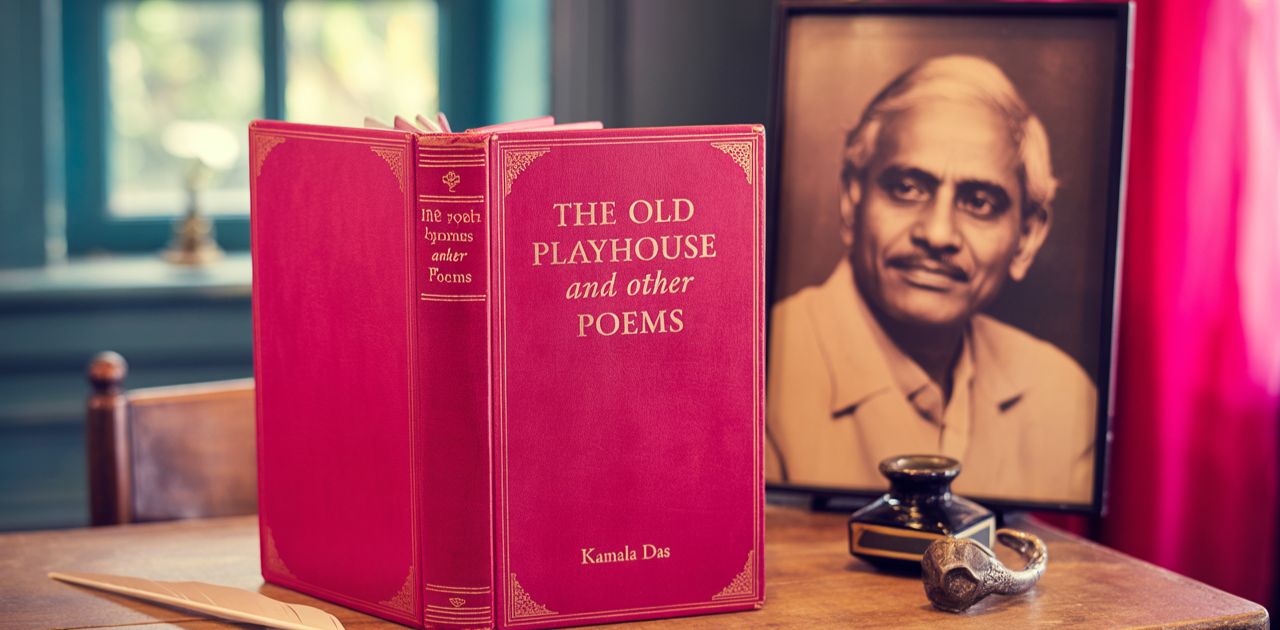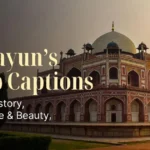Kamala Das burst onto India’s literary scene in 1973 with The Old Playhouse and Other Poems, a collection that forever altered how we perceive women’s voices in Indian literature. Her unflinching exploration of female sexuality, identity, and rebellion against patriarchal constraints shocked conservative readers while inspiring generations of writers. This groundbreaking anthology remains one of the most influential poetry collections in post-independence Indian literature.
The Old Playhouse
“You called me wife,
I was taught to break saccharine into your tea
and watch the sugar crystals melt
into the void of your bitter silence.”
This titular poem transforms domestic spaces into prisons of patriarchy. Das portrays marriage as a suffocating institution where women lose their identities.
The playhouse metaphor brilliantly captures how traditional gender roles reduce women to performers in scripts written by men. Each room becomes a stage where authentic emotions are forbidden.
My Grandmother’s House
“There is a house now far away
where once I received love
That woman died,
the house withdrew into silence.”
Memory and loss intertwine as Das mourns both her grandmother and the unconditional love she represented. The house becomes a symbol of childhood security now forever lost.
This poignant piece explores how familial bonds shape our understanding of love and belonging. The grandmother’s death marks the end of innocence.
An Introduction
“I am Indian, very brown, born in Malabar,
I speak three languages, write in
two, dream in one.
Don’t write in English, they said.”
Perhaps Das’s most defiant manifesto, this poem challenges linguistic purists who questioned her right to write in English. She asserts her multilingual identity with fierce pride.
The poem becomes a powerful statement about cultural authenticity and artistic freedom. Das refuses to be confined by others’ narrow definitions of Indian-ness.
More Posts:20+ Enchanting Short Poems by Ruskin Bond
The Looking Glass
“Getting a man to love you
is easy enough
if you know how to surrender
completely and lose yourself.”
This brutal examination of romantic relationships reveals how women are expected to erase themselves for male approval. The mirror reflects society’s distorted expectations.
Das exposes the psychological violence inherent in relationships where women must perform submission. The looking glass shows truth, not beauty.
The Freaks

“They sat around me
like cardboard cut-outs
of forgotten gods,
speaking of love in measured whispers.”
Society’s misfits and outcasts find voice through Das’s compassionate lens. She challenges readers to see humanity in those deemed abnormal or unacceptable.
The poem celebrates diversity and difference while critiquing social conformity. Das positions herself among the freaks, embracing their outsider status.
Summer in Calcutta
“The hot morning in the city
makes my body sweat and my mind
race with thoughts too dangerous
for a married woman to think.”
Urban heat becomes a metaphor for suppressed desire and awakening sexuality. Calcutta’s summer mirrors the protagonist’s internal turmoil and longing.
Das masterfully connects physical environment with emotional landscape. The city’s intensity amplifies forbidden thoughts and feelings.
The Dance of the Eunuchs
“It was hot, so hot that the men
had discarded their shirts
and the women wore
flowers in their hair.”
This celebration of India’s hijra community challenges binary gender concepts long before such discussions became mainstream. Das honors their unique cultural position.
The poem’s rhythmic structure mirrors actual dance movements. She presents eunuchs as powerful figures deserving respect and recognition.
Convicts
“We were convicts,
you and I,
sentenced to love
without parole or appeal.”
Love transforms into imprisonment in this stark portrayal of toxic relationships. Both partners become prisoners of their own destructive patterns.
Das explores how emotional dependency can become its own form of captivity. The legal metaphor emphasizes love’s binding, often painful nature.
The Maggots
“The maggots of my mind
eat through the fabric
of carefully constructed
social pleasantries.”
Mental anguish takes physical form as Das confronts depression and psychological decay. The visceral imagery forces readers to face uncomfortable truths about mental health.
This unflinching look at emotional deterioration predates contemporary conversations about mental wellness. Das refuses to romanticize psychological suffering.
Forest Fire

“You called it love,
this forest fire that consumed
my careful gardens
and left only ash and memory.”
Passionate relationships become destructive forces that simultaneously create and destroy. The natural metaphor emphasizes both beauty and danger in intense connections.
Das captures how all-consuming love can obliterate one’s sense of self. The forest fire imagery suggests both purification and devastation.
More Posts;17+ Sarojini Naidu Poems in English with Summary
The Invitation
“Come, let us speak
of love in a language
that flowers understand,
that the wind can carry.”
This tender piece offers hope and connection after the collection’s many darker moments. Das extends her hand to readers seeking authentic communication.
The poem’s gentle tone contrasts sharply with earlier works’ intensity. She suggests that true intimacy requires its own special vocabulary.
Composition
“I wrote my first poem
on the back of a geometry exercise book
when I was in love
with my mathematics teacher.”
Das reveals how artistic creation often springs from unrequited longing and impossible desires. The mundane setting contrasts with poetry’s transformative power.
This meta-textual piece explores creativity’s origins in everyday experiences. She demystifies the poetic process while honoring its emotional authenticity.
The Sunshine Cat
“They said, ‘You are
a sunshine cat,
all golden and lazy,
content with cream and comfort.'”
Domestic contentment becomes another form of feminine entrapment. The cat metaphor suggests both luxury and limitation in traditional women’s roles.
Das questions whether material comfort can compensate for spiritual and intellectual stagnation. The golden cage remains a cage.
Blood
“In the veins of my mother
flows the blood of warriors
who forgot to teach their daughters
how to fight.”
Hereditary strength and learned helplessness collide as Das examines intergenerational trauma. She mourns the warrior spirit lost through socialization.
This powerful meditation on ancestry and identity reveals how patriarchal conditioning weakens women’s natural resilience. The blood carries both power and pain.
In Love

“To be in love is to touch
with a lighter hand.
In yourself you stretch, you are
well, you are blessed.”
Rare moments of genuine romantic joy surface through Das’s typically critical lens. She acknowledges love’s capacity for transformation and healing.
The poem offers redemptive possibility after exploring love’s many darker manifestations. True connection remains achievable despite numerous obstacles.
The Doubt
“Perhaps the only religion
I have ever had
is doubt itself,
my constant, faithful companion.”
Spiritual uncertainty becomes a form of authentic faith in this profound exploration of belief and questioning. Das embraces doubt as wisdom rather than weakness.
The poem challenges religious orthodoxy while affirming the spiritual value of sincere inquiry. Doubt becomes more honest than blind faith.
More Posts:20+ Timeless Shiv Kumar Batalvi Poems in Hindi
Ghanashyam
“I have fallen in love
with the man who sells
bangles at the corner,
his dark skin like Krishna’s.”
Divine and earthly love merge as Das connects spiritual devotion with physical attraction. The bangle seller becomes a manifestation of Krishna’s beauty.
This fusion of sacred and sensual reflects Indian devotional traditions while maintaining Das’s characteristic frankness about desire. Love transcends social boundaries.
The Request
“Do not let me inherit
the bitterness of my mother,
the silence of my sisters,
the broken dreams of my aunts.”
Das pleads for freedom from inherited limitations in this poignant appeal to future generations. She refuses to perpetuate cycles of female oppression.
The poem becomes a prayer for transformation and hope for daughters yet unborn. She envisions breaking chains that bind women across generations.
Conclusion
The Old Playhouse and Other Poems continues inspiring readers decades after publication because Das dared to speak truths others whispered in shadows. Her unflinching examination of female experience, sexuality, and rebellion against patriarchal constraints opened doors for countless voices that followed. This revolutionary collection proves that authentic poetry must risk everything to achieve immortality.

Admin of https://aspirenowa.com/. Sharing Touching and Thoughtful Poems for all Hearts. I Believe in Simple Words, Deep Meaning, and Inspiring Emotions through Poetry for Every Reader.










